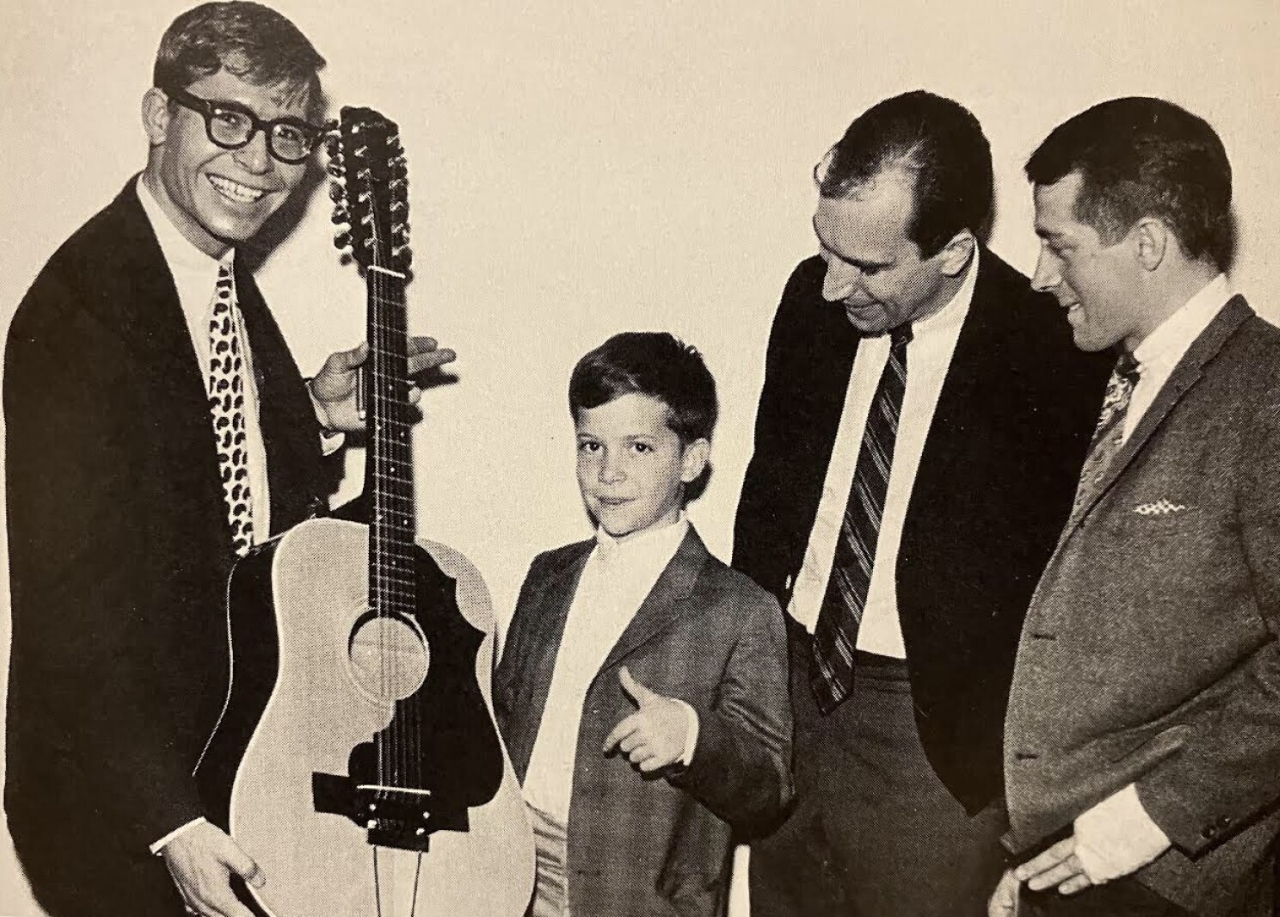🌄 The Mid-70s – John Denver at His Zenith
By 1975, John Denver was not just a popular singer — he was a cultural phenomenon. His face was everywhere: on magazine covers, TV specials, and stages across the world. He had sold millions of records, filled concert halls, and become a household name with songs that celebrated nature, simplicity, and love.
But with fame came pressure. Critics often dismissed him as “too soft,” calling his music lightweight in an era of hard rock and protest songs. For Denver, the challenge was to stay true to his gentle spirit while proving that his songs carried real emotional weight.
When “Windsong” was released in September 1975, it was more than just another record. It was a statement — a carefully crafted album that blended the joy of nature with raw human emotion. It became his highest-charting studio album, hitting No. 1 on the Billboard 200, and included some of the most important songs of his career.

🎶 A Blend of Joy and Sorrow
“Windsong” is a paradox of an album. On one hand, it carries some of Denver’s most cheerful and uplifting songs, full of light and energy. On the other, it contains one of his saddest and most vulnerable ballads.
The contrast was intentional. Life, Denver believed, was never just one note. It was windsong — sometimes gentle, sometimes howling, always moving.
The album’s tracklist was diverse: there was “Calypso”, his tribute to Jacques Cousteau; “Looking for Space”, a song of self-discovery; and “Fly Away”, a tender duet with Olivia Newton-John. Yet at the heart of the record lay “I’m Sorry”, a heartbreak ballad that revealed the pain behind Denver’s smiling public image.
This balance made “Windsong” resonate deeply. It was not only about mountains and rivers but also about the fragility of human love.
🛶 “Calypso” – Adventure and Celebration
One of the standout tracks was “Calypso”, a joyous anthem celebrating Jacques Cousteau’s ship. With its buoyant melody and adventurous spirit, it quickly became a fan favorite and a concert staple.
The song perfectly represented Denver’s love of nature and his role as an environmental advocate. Unlike traditional pop hits, “Calypso” reminded listeners that music could celebrate not just romance but exploration and stewardship of the Earth.
The single was released as the B-side of “I’m Sorry”. But to Denver’s surprise — and delight — radio stations played both sides, and “Calypso” became a hit in its own right. Together, the two songs showed the duality of “Windsong: joy and sorrow, celebration and regret.
💔 “I’m Sorry” – Vulnerability at the Core
At the emotional center of “Windsong was “I’m Sorry”. Simple in structure, almost fragile in delivery, it was unlike anything Denver had recorded before. The song stripped away the cheerful optimism he was known for and replaced it with raw vulnerability.
“I’m sorry for the way things are in China, I’m sorry things ain’t what they used to be…” — these lyrics resonated not just as a personal apology but as a universal lament.
The song reached No. 1 on the Billboard Hot 100, proving that audiences connected with Denver’s honesty. For many fans, it remains the song that revealed his humanity most clearly — a man who loved deeply, made mistakes, and wasn’t afraid to admit it.
Denver himself later admitted that the song reflected the strains in his marriage to Annie Martell, the muse behind “Annie’s Song”. By 1975, their relationship was unraveling, and “I’m Sorry” was a quiet cry from within.
🎤 A Duet with Olivia Newton-John – “Fly Away”
Another highlight was “Fly Away”, a gentle ballad sung with Olivia Newton-John. Their voices blended with an almost angelic harmony, capturing the longing for escape and freedom.
For Denver, collaboration was always about friendship and shared energy. Newton-John, already a rising superstar, admired Denver’s sincerity, and the two created one of the most tender duets of the era.
The song climbed the charts and remains one of Denver’s most beloved collaborations. More importantly, it reinforced “Windsong” as an album about journeys — some joyful, some painful, but all deeply human.
🌟 Commercial Success and Critical Debate
“Windsong” became one of Denver’s biggest commercial successes. It went platinum, produced multiple hit singles, and cemented his status as one of the top-selling artists of the 1970s.
Yet critics remained divided. Some praised Denver’s openness and melodic strength, while others still dismissed him as overly sentimental. But Denver never wavered. For him, touching even one heart was worth more than winning critical approval.
And the fans agreed. Concerts during the “Windsong” era were packed with audiences who sang along to every lyric, proving that Denver’s voice was not just heard but felt.
🪶 The Windsong Philosophy
At its core, “Windsong” was more than an album title. It was a philosophy. For Denver, life was like the wind — unseen but felt, unpredictable yet constant. Music, like wind, could not be captured, only experienced.
In songs like “Looking for Space”, he asked big questions about identity and belonging. In “Two Shots”, he added humor and playfulness. And in “I’m Sorry”, he laid bare his heart. Together, these songs created a portrait of a man embracing life in all its contradictions.
🪕 Legacy of “Windsong”
Nearly five decades later, “Windsong” is still considered John Denver’s peak album. It represents everything that made him unique: the joy of nature, the tenderness of love, the pain of regret, and the hope of discovery.
For many fans, listening to “Windsong” is like opening a time capsule to the 1970s — a reminder of a gentler, more hopeful world. And yet, its themes are timeless. Who hasn’t longed for escape, whispered an apology, or felt the pull of the unknown?
Denver once said, “Music brings people together. It allows us to experience the same emotions, to feel the same things, no matter where we come from.” “Windsong” remains proof of that truth.